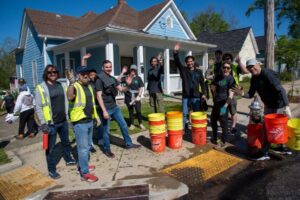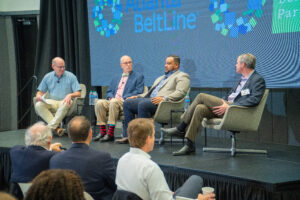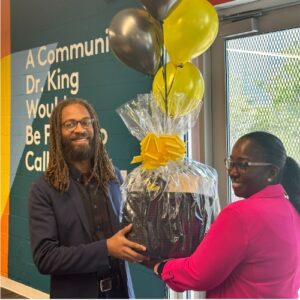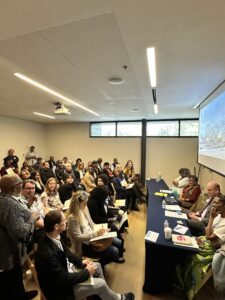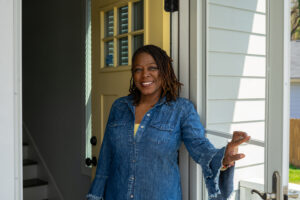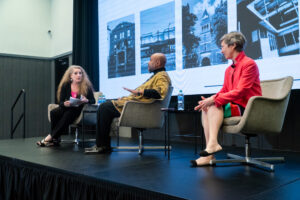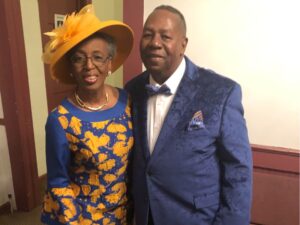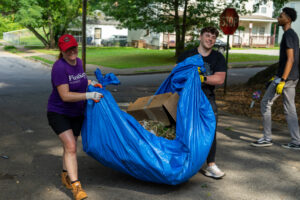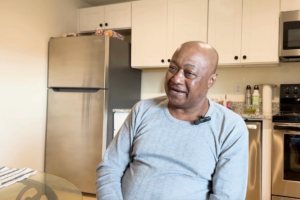In 2020, Westside Future Fund launched its Program Related Investments PRIs. PRIs are low-cost loans made with favorable terms to support the growth of minority enterprises. WFF provided these PRIs to small, minority-owned businesses that are based in or serving Atlanta’s historic Westside. Unlike traditional banking institutions, PRIs offer a viable solution to organizations that are gaining traction and doing important work within the community.
WFF has launched a new series “Empowering Entrepreneurs on the Westside” featuring PRI recipients and highlighting their contributions to the historic Westside. In this installment, Rejoice Jones, founder of Vower, Inc. highlights the work she and her company are doing to advance the careers of local Westside residents.
One of the first steps toward securing a promising future is launching a career, and this can be a daunting task for many young folks who are just starting out. That’s why Westside resident Rejoice Jones founded Vower, Inc.
“Vower connects Black and Brown people with non-traditional employers like sole proprietors or companies with limited funding. We specifically support 16- to 30-year-olds, entry-level workers in high school and college or others who just want to find a job and build their resume,” said Jones.
Jones is a native of Michigan and Emory University graduate. She has a decade of ventures on her resume as an entrepreneur along with experience in building strategic partnerships and organizing public/private initiatives for community focused organizations.
The mission of Vower, making the connection to employers easier for young people, has been a game changer – especially for the historic Westside community. It’s one of the reasons why Westside Future Fund (WFF) named Vower a recipient of the Program Related Investments (PRI) program – to amplify the work the company is doing to make a difference for young people who are finding their way.
“The PRI program has provided gap funding that is getting us from point A to point B,” said Rejoice.
Networking Works
Networking is one way small business owners like Rejoice are making connections to keep doing impactful work on the Westside. She started building her network by attending weekly Transform Westside Summit events hosted by WFF at The Gathering Spot before the COVID-19 pandemic.
Rejoice reflects on how she made her first few business deals thanks to networking at WFF events: “When I first started Vower, I went to the Westside Future Fund Summit event every Friday and it was standing room only,” said Jones. “Being persistent at those meetings catapulted me into building a network in our community.”
Today, Vower, Inc, has partners, customers and course creators that include Google, Microsoft and Atlanta Public Schools. The company provides course education in social media and marketing, operations, customer service and events.
WFF’s mission is to advance a compassionate approach to neighborhood revitalization. This mission requires a holistic investment into the communities we serve including supporting local business owners. Our philanthropic partners make initiatives like WFF’s PRI program possible.
Join us in supporting our work as we continue Our Next Chapter.


